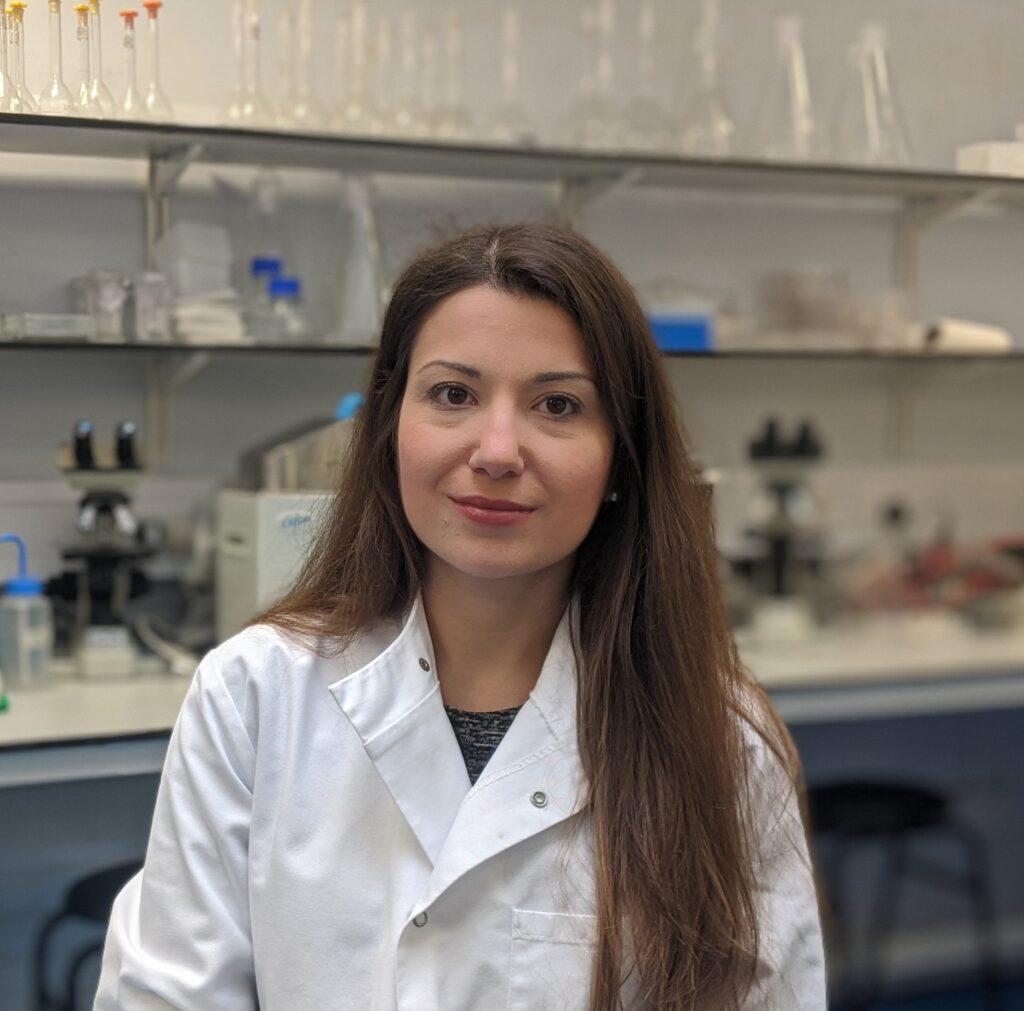Overcoming drug resistance in breast cancer
Q&A with Dr Ioanna Keklikoglou

October is Breast Cancer Awareness Month. Breast cancer is the most common cancer in the UK, with approximately 55,900 new cases diagnosed in the UK each year.
In recognition of Breast Cancer Awareness Month, we spoke with Dr Ioanna Keklikoglou, Lecturer and Group Leader in the Centre for Tumour Microenvironment at Barts Cancer Institute, Queen Mary University of London. Dr Keklikoglou’s research focuses on understanding the molecular and cellular mechanisms that control resistance to anti-cancer therapies in breast cancer.
What sparked your interest in breast cancer research?
Despite the many scientific achievements and discoveries on the therapeutic management of breast cancer, it remains a deadly disease - especially if not diagnosed early - affecting more than 2 million women every year worldwide. Having witnessed the loss of a beloved family member from breast cancer in my childhood, and in combination with my intrinsic curiosity about science, I decided to pursue a career in cancer research. I was fascinated by the diversity (heterogeneity) of this disease.
Despite the extraordinary progress in drug discovery for certain subtypes of breast cancer, others still are of an unmet clinical need. Finding new ways to overcome the hurdles and difficulties in targeting breast cancer growth and spread effectively is of interest to me.
What are the main aims of your current research?
My main focus is to understand why certain tumours develop resistance to therapy, and to identify new strategies to overcome this issue. My group is trying to understand how the immune system changes on and after therapy, and how these changes may limit the therapeutic efficacy of the standard-of-care, leading to cancer spread (known as metastasis). We hope that by better understanding the role of immune cells, our studies may reveal novel therapeutic targets that could improve current therapeutic regimes by unleashing an anti-tumoural response and prolonging the survival of patients.
Why is this research so important?
It is essential to understand why some tumours fail to respond to therapy, or relapse. Shedding light on the biological processes involved herein will lead to new knowledge that can be used to design better therapies for the management of breast cancer patients. Identifying ways to combat metastasis formation, which is the cause of cancer-associated death, will significantly improve survival rates of patients.
What do you think are the biggest challenges we face in tackling drug resistance in breast cancer? How do you think these can be overcome?
I think the biggest challenge for treating breast cancer is the disease heterogeneity – breast cancer consists of different subtypes. Every tumour is different due to genetic, histopathological or other factors, such as the presence and activation state of immune cells within the microenvironment in which the cancer cells grow. Hence, each patient, depending on the specific characteristics of their tumour, requires a different therapeutic approach. This complexity is further enhanced by the different responses and adaptations of tumours to therapy.
In some cases, tumours that initially respond to therapy will relapse, grow and spread in the body, leading to metastasis formation. Our aim is to understand the reasons behind this phenomenon, and how cancers evolve with treatment, in order to design better therapies and overcome therapy resistance.
I believe the manipulation of the immune system to specifically recognize and kill cancer cells offers an exciting era for breast cancer treatment. While immunotherapy is currently recommended for the management of tumours that carry a mutation in the BRCA gene, understanding why a type of immunotherapy known as immune checkpoint inhibitors are ineffective in other subtypes will be important to find new strategies for breast cancer sensitisation to immunotherapy.
Related links:
- Find out more about Dr Keklikoglou’s research
- Find out more about our breast cancer research
Category: General News, Interviews

No comments yet